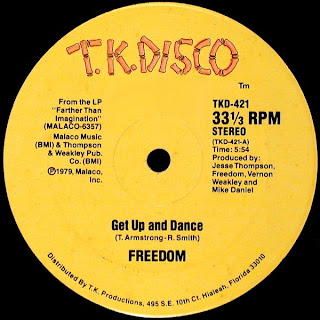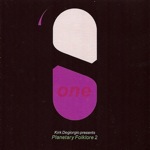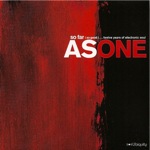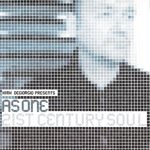But first, the first wave of old-school rap - and continuing on from my earlier post, the years 1979-1981.
Very few rap records were licensed by UK labels during this period, but nevertheless a few imports made an appearance amongst the soul-RnB radio shows at the time. These tended to be the rap records with a more conventional disco/soul backing track.

One of the earliest - and best - of these early rap/disco tracks was by early hip hop DJ Eddie Cheba, on the Bronx independent label Tree Line. In Mark Skillz profile of Eddie Cheba for Wax Poetics magazine, no less than Chuck D is quoted as saying Cheba "...infiltrated the over eighteen college bracket that simply hated on the art form. They put a bow-tie on Hip Hop at that time to get it through".
"Lookin' Good" served the same purpose in the UK. It deftly sneaked Hip Hop culture into mainstream disco/soul clubs and radio shows that may have rejected more 'hardcore' examples of early rap such as "We Rap More Mellow" or "Superappin'". Not that "Lookin' Good" is a watered down affair - its success - and demand to this day - is its combination of an original, well-produced, driving disco rhythm track (not too dissimilar from Kleeer's 1979 disco classic "Keep Your Body Working", although certainly no loose cover version as many early rap backing tracks were at this point), female vocals and quick-fire, confident rapping from one of the pioneers of the genre.
 Despite the huge success of "Rapper's Delight" in 1979 it was still the more conventional 'rap' tracks that crossed-over into the mainstream clubs. Another example in early-1980 was "Education Wrap" by Community People, which made an appearance in the official Disco Top 30. Like the Eddie Cheba track, it combines an original backing track - this time a mid-tempo, jazzy groove - with conventionally sung sections, female backing vocals and short bursts of staccato rap. Saxophone and piano solo complete this positive-message rap released on New York independent Delmar International.
Despite the huge success of "Rapper's Delight" in 1979 it was still the more conventional 'rap' tracks that crossed-over into the mainstream clubs. Another example in early-1980 was "Education Wrap" by Community People, which made an appearance in the official Disco Top 30. Like the Eddie Cheba track, it combines an original backing track - this time a mid-tempo, jazzy groove - with conventionally sung sections, female backing vocals and short bursts of staccato rap. Saxophone and piano solo complete this positive-message rap released on New York independent Delmar International.In winter 1979/80, Kurtis Blow's "Christmas Rappin'" became the second rap record to break over into the mainstream - this time benefitting from Mercury Records major label promotion and distribution network in the US and overseas.
Unbeknown to many - including the media outside of New York, was the existence of a growing selection of producers and artists eager to follow in the footsteps of the success of The Sugarhill Gang and Kurtis Blow, etc. It wasn't until the release of the "Genius of Rap" and "Rap Tracks" compilations did the UK become more fully aware of labels such as Enjoy and artists such as Afrika Bambaataa, Dr. Jeckyll & Mr. Hyde, The Treacherous Three, etc. All of whom were established legends of the Bronx Hip Hop scene.
Even further off the radar were the multiple rap releases by promoter and producer Peter Brown on labels such as Sound Of New York, USA, Heavenly Star, Golden Flamingo and others. Many of these obscure releases would not fully be appreciated until the demand for "old-school" rap in the 1990's.
These releases were not the hybrid disco/rap releases that breached the mainstream. These were often intense, raw, unadulterated rap routines played out over a particular labels in-house band extending a faintly disguised instrumental cover of popular disco/boogie hits of the time.
Between 1979-1980 certain 'rhythm tracks' were especially popular, e.g. those based on Cheryl Lynn's "Got To Be Real", The Whole Darn Family "Seven Minutes Of Funk", Cloud One "Patty Duke", etc.

Other backing covers featured on early rap tracks included versions of Direct Current "Everybody Here Must Party", Freedom "Get Up and Dance", 7th Wonder "Daisy Lady", A Taste Of Honey "Rescue Me", etc - a mix of obscure B-Boy classics and mainstream disco grooves.
Labels such as Paul Winley and Enjoy often recorded original backing tracks - the former label featuring the Harlem Underground Band, the latter a group of musicians led by legendary hip hop drummer Pumpkin - the King Of The Beats.
Sugar Hill label owner Sylvia Robinson would initially use Positive Force on "Rapper's Delight", then the classic trio of Doug Wimbish, Skip McDonald and Keith LeBlanc played many of the backing tracks for their rap artists.
















No comments:
Post a Comment